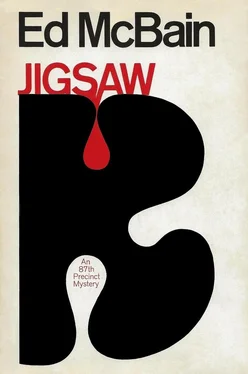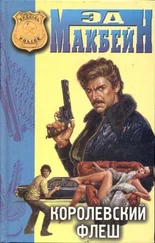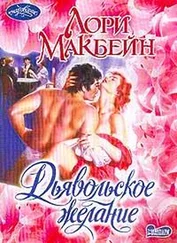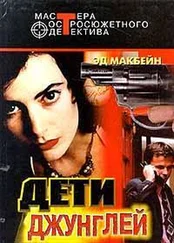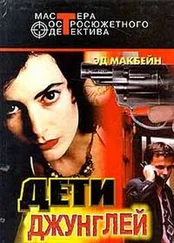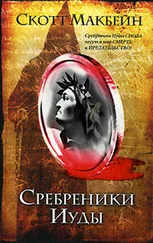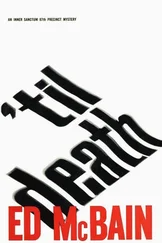“Maybe I ought to leave you two alone for a while,” Brown said.
“How much are you willing to pay for it, Mr. Stokes?” Kahn asked.
“That depends.”
“On what?”
Brown said nothing.
Kahn said, “On whether or not it’s a piece you already have, isn’t that the answer?”
Brown still said nothing.
“You do have a piece, don’t you? Or several pieces?”
“Is it for sale or not?” Brown asked.
“No,” Gerry said.
“Yes,” Kahn said. “But you still haven’t made an offer, Mr. Stokes.”
“Let me see it first,” Brown said.
“No,” Kahn said.
“No,” Gerry said, just a beat behind him.
“How many pieces do you have, Mr. Stokes?”
No answer.
“Is the other gentleman your partner? Do you have more than one piece?”
No answer.
“Do you know what the picture is supposed to reveal?”
“Let me ask a few,” Brown said.
“Please,” Kahn said, and offered him the floor with an openhanded, palm-up gesture.
“Miss Ferguson...”
“I thought it was Gerry.”
“Gerry... where did you get the piece you now have?”
“You’re both dreaming,” Gerry said. “I don’t know what either one of you is talking about.”
“My client...”
“Your client, my ass,” Gerry said. “You’re a cop. Who are you trying to kid, Arthur?”
“Are you a policeman, Mr. Stokes?”
“No.”
“The fuzz stench is overpowering,” Gerry said.
“How do you come to be so familiar with that stench?” Brown asked.
“May I answer that one?” Kahn asked.
“Keep your mouth shut, Bram,” Gerry warned.
“Mrs. Ferguson’s sister is a girl named Patty D’Amore,” Kahn said. “Does that mean anything to you?”
“Not a thing,” Brown said.
“Her husband was a cheap gangster named Louis D’Amore. He was killed some six years ago, following a bank holdup.”
“I don’t keep track of such things,” Brown said.
“No, I’ll just bet you don’t,” Gerry said. “He’s a cop, Bram. And you’re a fool.”
“Sicilian blood is much, much thicker than water,” Kahn said, and smiled. “I would imagine that in your childhood, there was plenty of talk concerning the ‘stench of fuzz’ while the lasagna was being served, eh, Geraldine?”
“How would you like to hear a choice Sicilian expression?” Gerry asked.
“I’d love to.”
“Va fon gool,” Gerry said.
“Even I know what that means,” Brown said.
“Sounds Chinese,” Kahn said.
“About the picture...”
“We have it, and we’ll sell it,” Kahn said. “That’s our business. Selling pictures.”
“Have you got any customers who’ll buy a picture sight unseen?” Brown asked.
“Have we got any customers who’ll buy a picture that doesn’t even exist?” Gerry asked.
“Well,” Brown said, “why don’t you give me a ring when you’ve settled this between you, huh?”
“Where can we reach you, Mr. Stokes?”
“I’m staying at the Selby Arms. It’s a fleabag on North Founders, just off Byram Lane.”
“Are you an out-of-towner, Mr. Stokes?”
“Room 502,” Brown said.
“You didn’t answer my question.”
“You didn’t answer any of mine, either,” Brown said. He smiled, rose, turned to Gerry and said, “I hope you’ll reconsider, Miss Ferguson.”
This time, she didn’t ask him to call her Gerry.
On the street outside, Brown looked for a phone booth. The first phone he tried had the dial missing. The receiver on the next phone had been severed from its metal-covered cord, undoubtedly with a wire cutter. The third booth he found seemed okay. He put a dime into the phone and got nothing, no dial tone, no static, no nothing. He jiggled the hook. His dime did not come back. He hung up the receiver. His dime did not come back. He hit the phone with his fist. Nothing. He went out of the booth swearing, wondering when the city was going to crack down on the illegal gambling devices the telephone company had installed all over the city and labeled “Public Telephones.” He supposed a Gaylord Ravenal type would have enjoyed this kind of action — you put your money in the slot and either lost it, or else hit the jackpot and a shower of coins came out of the return chute — but Brown merely wanted to make a telephone call, and the Las Vegas aspects of such an endeavor left him absolutely cold. He finally found a working telephone in a restaurant off Tyler. With a glance heavenward, he put his dime into the slot. He got a dial tone immediately.
The number he dialed was Albert Weinberg’s. Weinberg had given him his new address the night before, a rooming house on North Colman, close to Byram Lane, which was why Brown had checked into the Selby Arms, only three blocks away from Weinberg’s place. When Weinberg came onto the line, Brown related his encounter with the owners of the Ferguson Gallery and said he hoped to hear from them later in the day, was in fact heading back to the hotel right this minute.
“That’s the Selby Arms, right?” Weinberg said.
“Yeah, on North Founders. How’d you make out?”
“I’ve been doing a little asking around,” Weinberg said, “and the way I understand it, whenever some guy’s been knocked off, the cops take his clothes and his belongings downtown to what they call the Property Clerk’s Office. The stuff can be claimed by a relative after the medics, and the lab, and the bulls on the case are finished with it. You think I could pass for Ehrbach’s brother?”
“I sure as hell couldn’t,” Brown said.
“Might be worth a try, save ourselves a few bucks.”
“A fix is safer,” Brown said.
“Let me go on the earie a bit longer,” Weinberg said, “try to find out who runs that office.”
“Okay. You know where to reach me.”
“Right. Let me know if Ferguson or her pansy partner get in touch.”
“I will,” Brown said, and hung up.
In the cloistered stillness of the squadroom (telephones jangling, typewriters clanging, teletype clattering, a prisoner screaming his head off in the detention cage across the room), Steve Carella spread the four pieces of the photograph on his desktop and tried to fit them together.
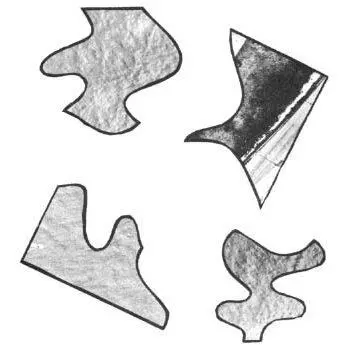
He was not very good at working jigsaw puzzles.
The way he looked at it, and there were many ways of looking at it, the right-angle pieces were obviously corner pieces, which meant that either of them could go in any one of four places, most rectangles having four and only four corners, brilliant deduction. The simplest of these two corner pieces looked like nothing more than a dark rough surface with something jutting into it from above or below, depending on whether the corner was a top corner or a bottom corner. The something jutting into the dark rough surface strongly resembled a phallus with a string around it. (He doubted very much that it was actually a phallus. If it was, they had an entirely different kind of case on their hands.) The second corner piece, the one with the sweeping curves, seemed to be a section of a wall or a building or a handball court. Which brought him to the two remaining pieces, both with the same rough gray surface. It was the surface that troubled Carella. The more he looked at it, the more it looked like water — but how could that tie in with the wall or building or handball court in the corner piece?
He was not very good at working jigsaw puzzles.
After ten minutes of study, he finally managed to fit two of the pieces together, a task Albert Weinberg had completed in thirty seconds. Ten minutes later, he had fitted another piece into the puzzle. Twenty minutes after that, he was convinced that the fourth piece did not fit against any of the other three. He looked at what he now had:
Читать дальше
